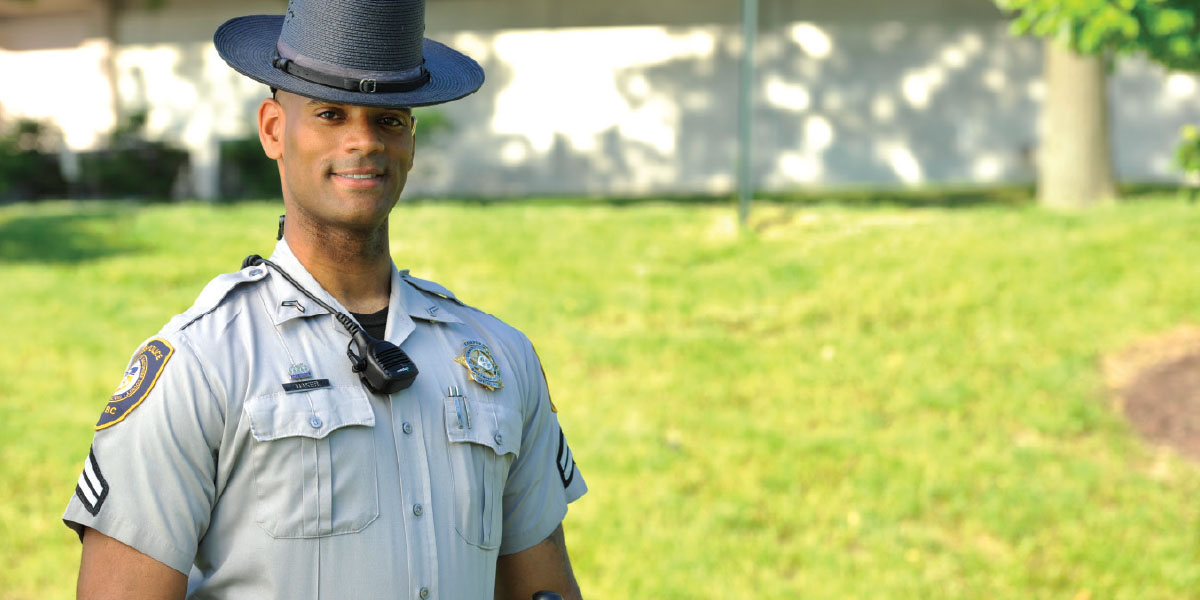As it did to staff at many institutions, the 2007 tragedy at Virginia Tech took our breath away—first with compassion for the affected students, their families, and our higher education colleagues; and next in terms of our own college’s potential vulnerability. As a result, the Community College of Baltimore County (CCBC), Maryland, initiated a four-year journey in professionalizing our public safety department to improve our responsiveness and preparedness.
Empowering Security Staff
Prior to our upgrading process, CCBC’s public safety department employed security guards focused on protection of people and property. With the same enforcement authority as regular citizens, the guards could be relatively effective as long as the campus community recognized their role. But too often this was not the case.
Key to the department’s professional transition was the decision to take advantage of a Maryland legal provision that allows "special police"—who may be armed or unarmed—to have full police powers while on the employer’s premises. These officers are certified by the state police before receiving their commissions.
CCBC created 32 positions for such certified public safety officers, as well as about 60 positions for noncertified officers, who augmented the certified staff as part-time security guards. After the announcement of this plan, full-time security guards had one year to meet the certification requirements or face layoff. In the end, 85 percent of the security guards became certified as special police.

Above-and-Beyond Training
The college required extensive training for the department’s special police officers—which we were able to do by capitalizing on existing in-house academic expertise. Maryland law requires that all regular police officers complete a 26-week, 1,040-hour course.In conjunction with the Baltimore County Police Department, CCBC’s School of Business, Criminal Justice, and Law provides the academic components of the entry-level program. The Baltimore County Police Academy is located on CCBC’s Dundalk campus.
With these resources, the college developed an eight-week, 320-hour public safety academy that awards 13 credit hours and includes modules as varied as constitutional law, first-aid training, domestic and workplace violence, and traffic control.
Other hiring criteria include an intensive background check, a physical agility test, drug tests, and numerous interviews. Because of the significant investment in selection and training, each officer must provide a minimum of three years of return service or repay the college for the cost of training.
Further Formalization
Once the new departmental organization was in place, CCBC made a number of additional decisions.
- The department would provide ongoing professional development, with full-time and part-time officers receiving 16 hours per year of in-service training.
- Since the physical agility test to enter the academy is closely linked to the essential functions of the job, each officer would need to annually recertify by passing the agility test.
- The department would phase in a unified rank structure. While all officers initially were equal in rank, the college began rotating the officers in charge for each shift. Eventually, CCBC would offer a promotion process that included more objective components like written tests and interviews graded by non-CCBC staff, as well as subjective components like the supervisor’s assessment of an officer’s leadership potential.
- A general orders manual would codify important policies and procedures, covering basic organization and structure, use of force, arrest authority, and related topics—with all officers held to the same standards.
- CCBC would formalize an agreement with its local police department to codify which types of crimes would be handled by each department.
The investment and support of a professionalized police force by CCBC’s President Sandra Kurtinitis and the board of trustees has begun to pay dividends. Our officers are better able to address criminal activity when it occurs and deal with inappropriate student behavior as it affects the teaching and learning environment.
SUBMITTED BY Melissa L. Hopp, vice president of administrative services, and Stephen E. Drummond, director of public safety, the Community College of Baltimore County, Maryland.

